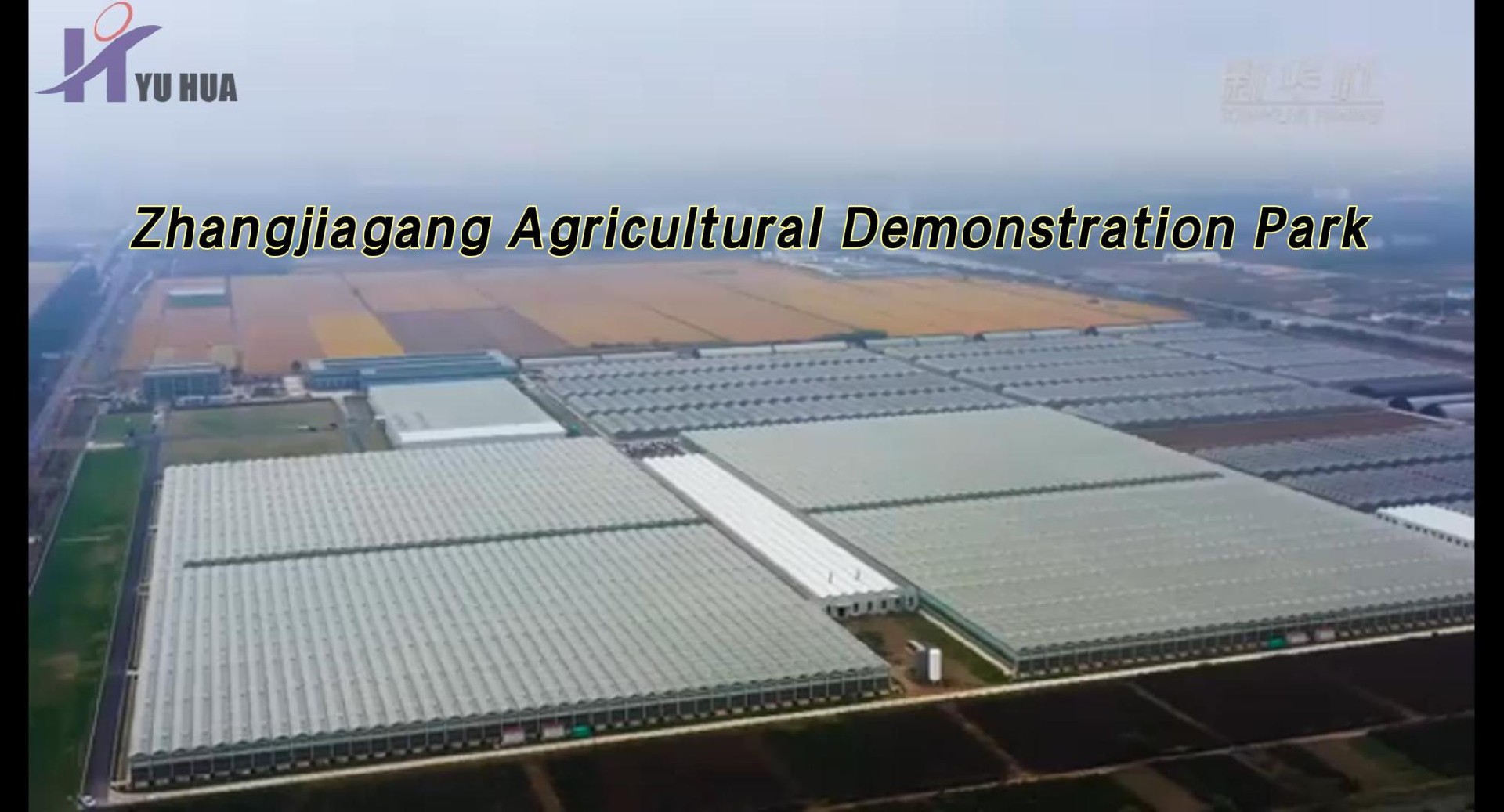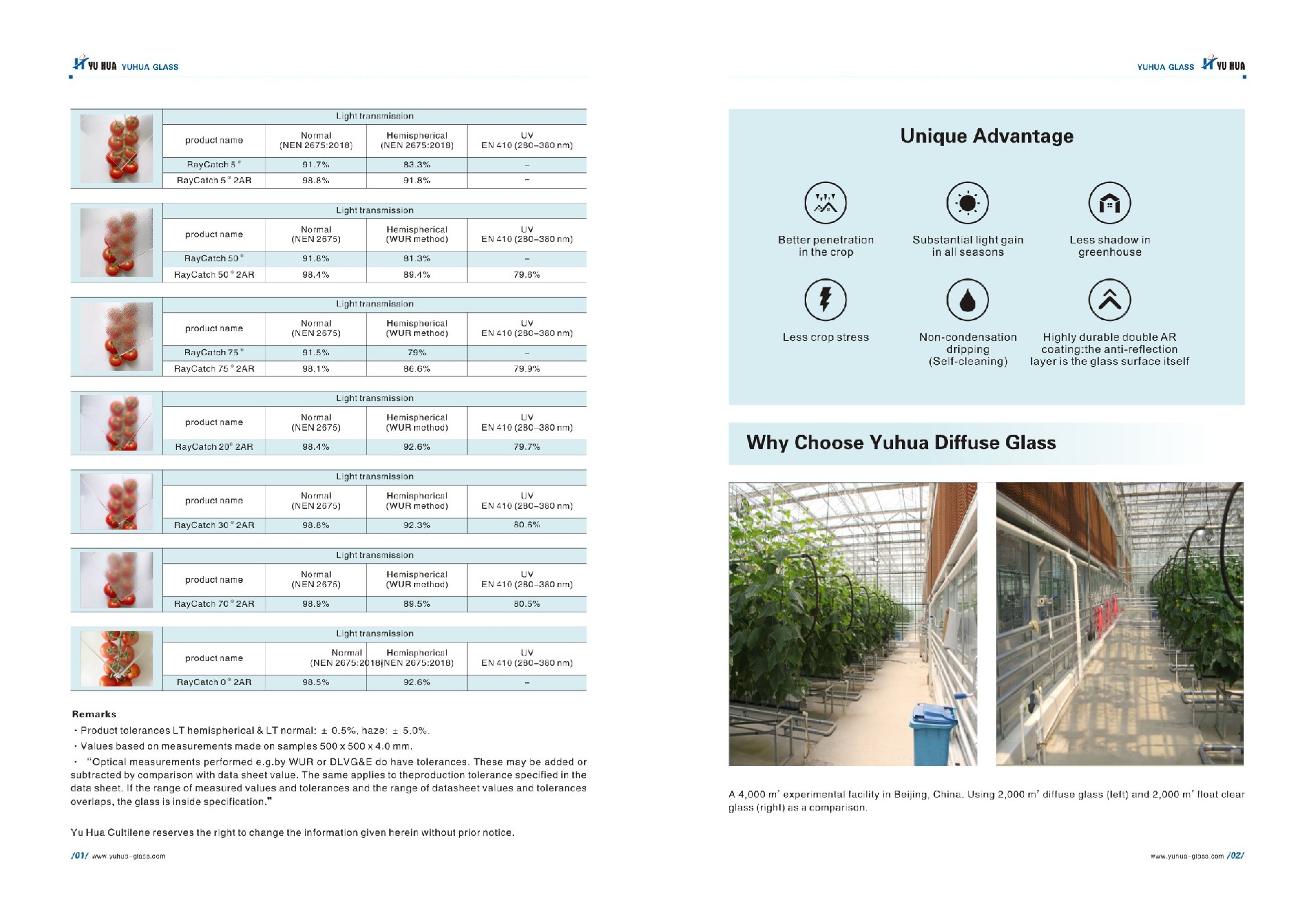
What is the advantage of diffuse glass in Dutch greenhouses?
In commercial production, the most widely accepted rule of thumb for growers is that a 1% increase in sunlight equals a 1% increase in crop yield. Therefore, it is a common understanding that the glass covering used in greenhouses should allow as much sunlight as possible into the greenhouse to achieve maximum crop photosynthesis.

Diffuse greenhouse glass
In greenhouse cultivation, diffuse light properties are increasingly used and is always a topic of discussion, in screening, roof-washing and grow lights.
Diffuse Light
Diffuse light is light that is scattered and distributed evenly in all directions. Having this diffuse property on the roof of a greenhouses, limits hard shades. Reducing shaded areas is desired for a homogenous cultivation. Especially with crops that grow vertically (tomatoes, peppers and cucumber) diffuse light has a positive effect as light can penetrate further into the crop. The lowest leafs can also take in sunlight, increasing photosynthesis and thus, crop growth. Crops can also handle diffuse light better and more efficiently than direct sunlight.
Haze-factor
The level of light diffusion is quantified by a specific number known as the haze factor. This number represents the proportion of incoming light, coming in at a perpendicular angle, that deviates more than 2.5° from a straight path. For instance, if 60% of the direct light is redirected, this would correspond to a haze factor of 60%.
AR-coatings
There are two different ways to create diffuse glass for use in greenhouses: chemical etching and creating a structure into the glass with a pressure roll. In both cases, light diffusion costs a percentage of total light translucency. For most greenhouses, especially vegetable greenhouses, this is undesirable. AR coatings can compensate for the loss of light during diffusion. AR, anti-reflection coatings, limits the reflection properties, which increase translucency. AR coatings can be applied on both sides of the greenhouse glass sheets. The drawback is that it is costly, but also vulnerable for cleaning agents.
Flexibility
Choosing diffuse glass in greenhouses creates the effect all year round, for a longer period. Throughout the season the diffuse properties might not be desired. When reselling the greenhouse, or changing costs, the diffuse character of the roof glass cannot be changed. In order to be able to deal flexibly with changing market conditions, options such as temporary diffuse coatings and diffuse screen cloths should always be considered.
To briefly summarize the benefits of diffuse glass, it can be said that the special properties of diffuse glass to scatter light ensure that sunlight is more evenly distributed on the plants, reducing shadows and hot spots. More even light distribution allows for better photosynthesis, which promotes plant growth and productivity. In addition, diffuse glass helps reduce the stress caused by direct sunlight on plants, making it particularly useful in areas or seasons with high light intensity. Overall, using diffuse glass can help increase yields and improve crop quality.
The light transmittance of Yuhua greenhouse glass can be as high as 99%, and there are 8 haze options including 5/10/20/30/40/50/70/75. Yuhua® also supplies glass to greenhouse project companies such as Havecon, Kubo and Van Der Hoeven. For more information, please contact us at overseas@hnyxlc.com.

Tags:anti-reflective glass diffuse glass agricultural greenhouses glass greenhouse venlo greenhouse AR glass greenhouses glass agricultural glass horticultural glass #greenhouseglass #Antireflectiveglass #Diffusetemperedglass #Ultrawhitefloatglass #agriculturalgreenhouseglass #diffuseglass #horticulturalglass #Tomatogreenhouse #Coloredpeppergreenhouse #Lettucegreenhouse #Agriculturalgreenhouse #ARglass #venlogreenhouse #greenhouseglass #Antireflectiveglass #Diffusetemperedglass #Ultrawhitefloatglass #agriculturalgreenhouseglass #diffuseglass #horticulturalglass #Tomatogreenhouse #Coloredpeppergreenhouse #Lettucegreenhouse #Agriculturalgreenhouse #ARglass #venlogreenhouse #GlassManufacturer #invernadero #ArchitecturalGlass #ClearFloatGlass #FloatGlass
Previous:greenhouse glass
Next:We sincerely invite you to visit Yuhua Glass booth for communication!



















